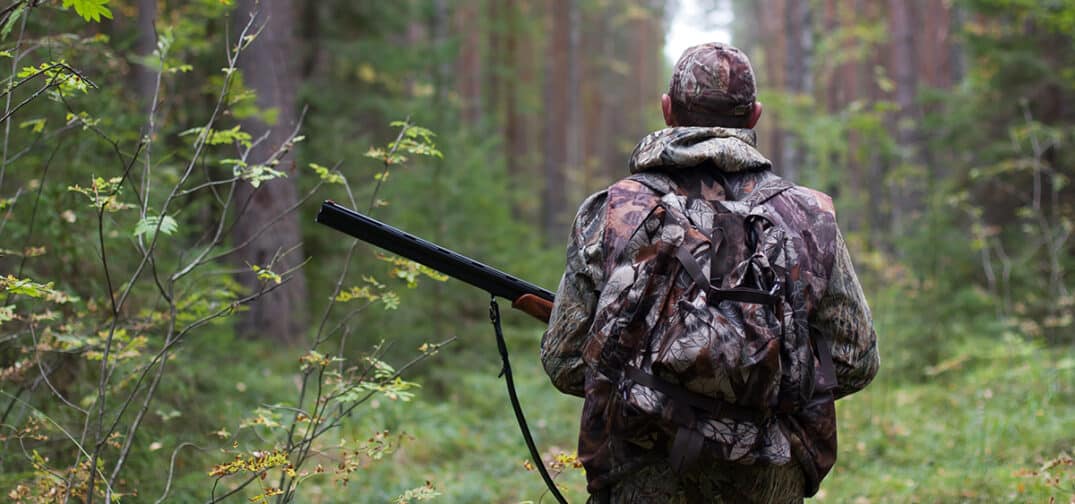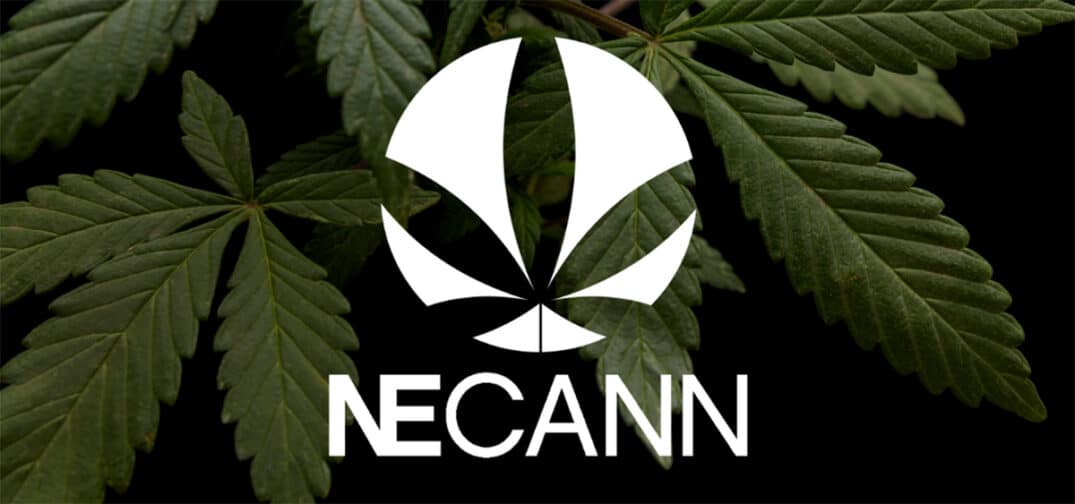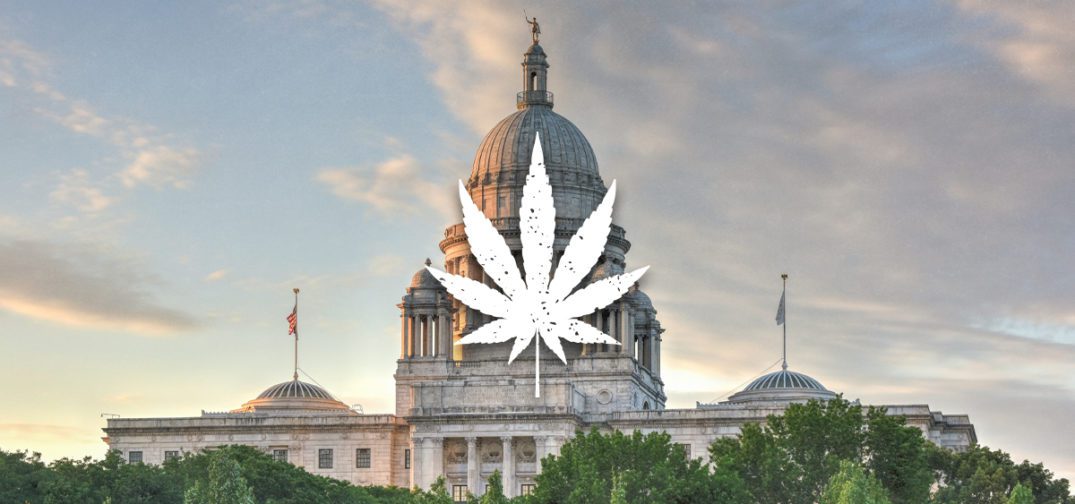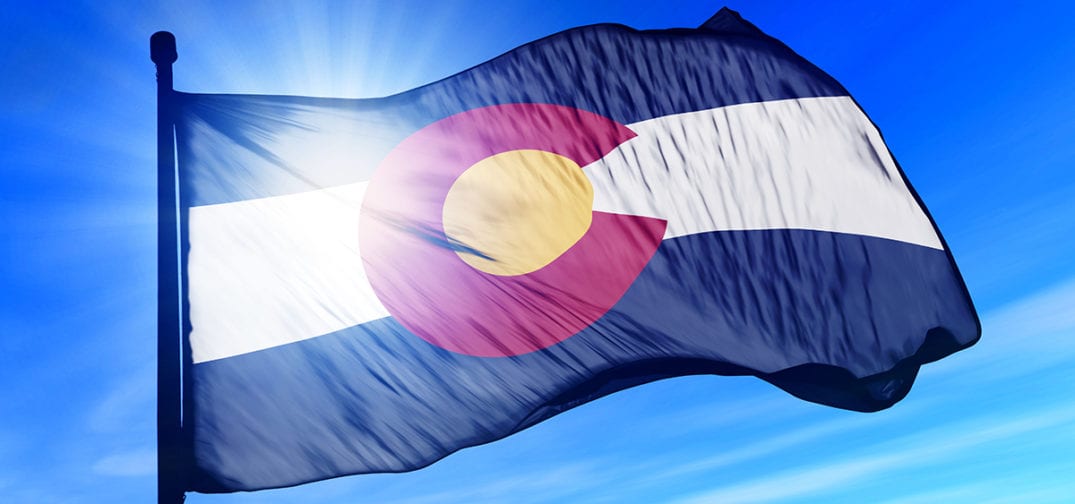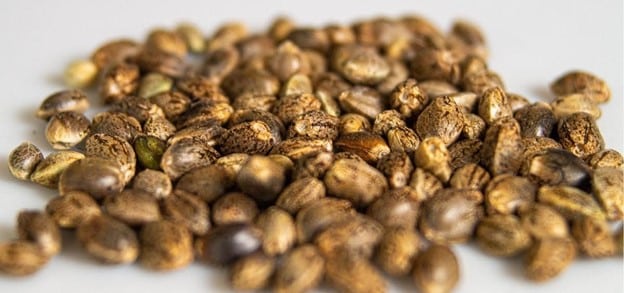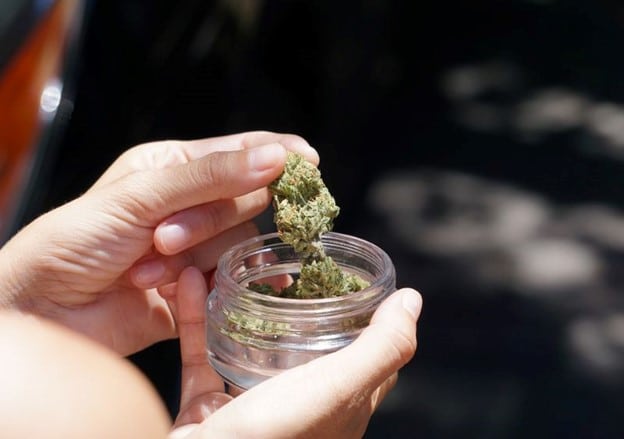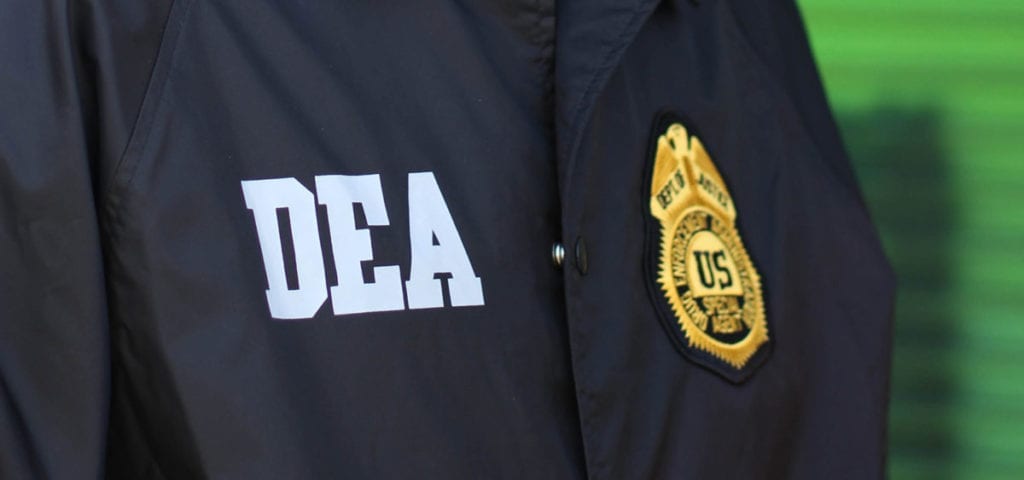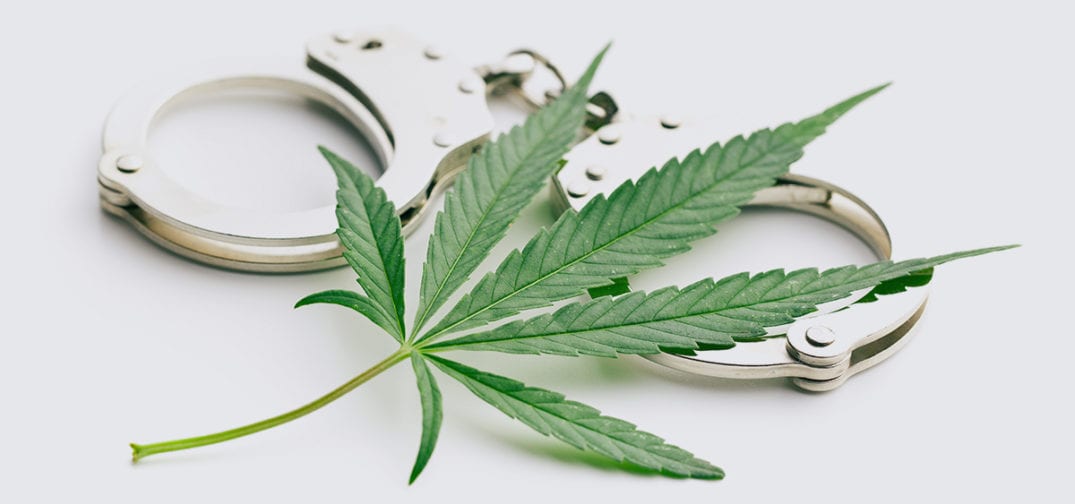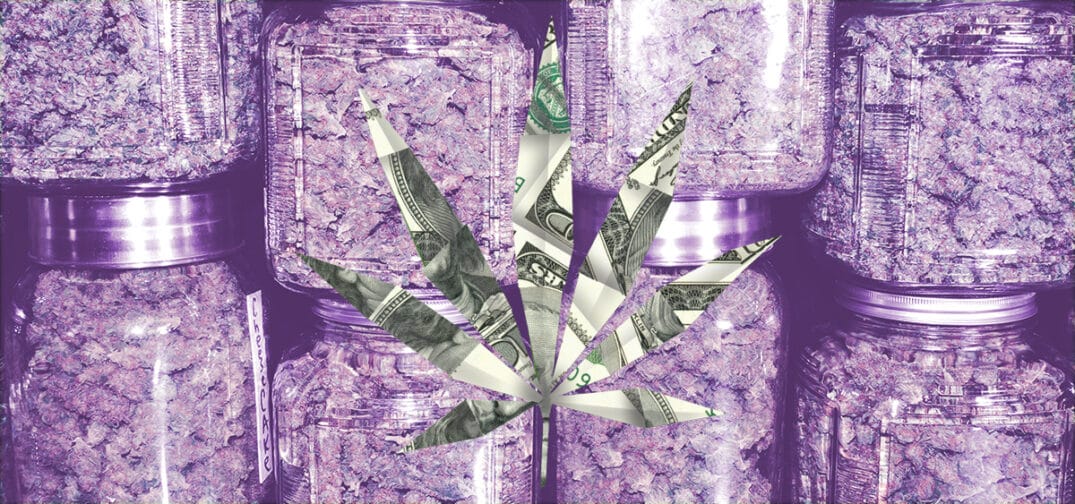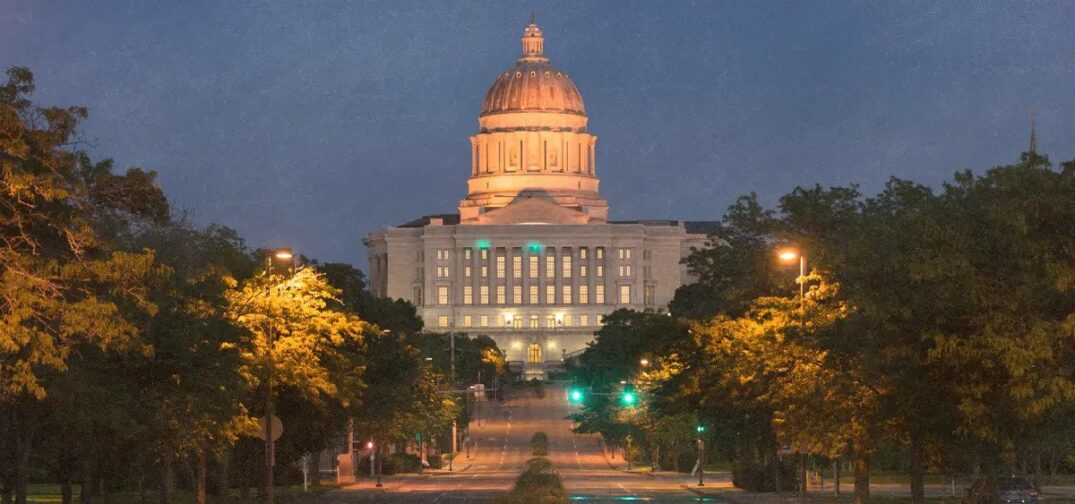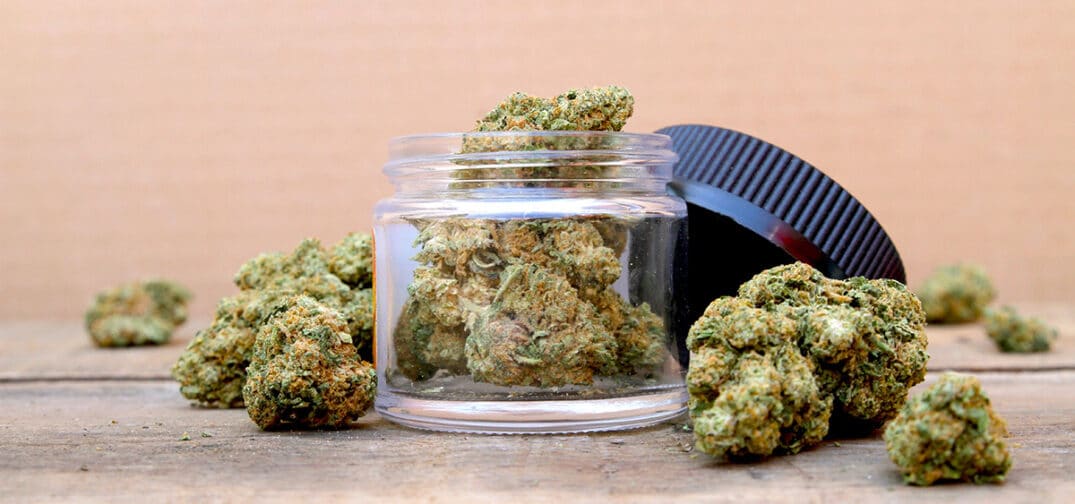In this episode of the Ganjapreneur podcast, host TG Branfalt is joined by Dr. Sean Myles, an associate professor of agriculture at Dalhousie University in Halifax, Nova Scotia, who brings a wealth of knowledge on plant genetics. While Dr. Myles has made significant contributions to the study of plant varieties in apples and grapes, today’s focus is on his groundbreaking work in cannabis research. Within the unique intersection of agriculture, genetics, and the culture and policy of cannabis legalization, Dr. Myles sheds light on how cannabis labeling, genetic diversity, and breeding practices are shaping the future of the industry.
Find the episode on your favorite podcast app, listen via the media player below, or scroll down for the full transcript!
Listen to the episode:
Read the full transcript:
Editor’s note: this transcript was auto-generated and may contain errors.
Commercial:
The Ganjapreneur Podcast is made possible by over 500 cannabis industry service providers in Ganjapreneur’s Cannabis Business Index. At some point, every plant touching brand experiences the stigma that many industries still have to toward cannabis going strong. Since 2015, our business index is the most comprehensive and frequently visited directory for cannabis friendly services on the internet, saving you the time and hassle of sifting through uninformed and unwelcoming providers with categories for everything from business financing to extraction equipment to interior designers and public relations. You’ll find every kind of specialist and business service you could ever need. Check out the business index today at Ganjapreneur.com/businesses.
TG Branfalt:
Today we’re joined by Dr. Sean Myles. He’s an associate professor of agriculture at Dalhousie University. He’s done countless, countless studies on cannabis, agriculture, a lot on apples, which I find very interesting, but that’s not where we’re here to talk about today. How are you doing this morning, Sean?
Sean Myles:
Doing great. Thanks for having me on.
TG Branfalt:
I’m real excited. We have a lot to talk about. Before you get into it, man, tell me about yourself. Tell me your background and how you ended up a doctor, associate professor, and all that good stuff.
Sean Myles:
Sure. I’m really passionate about food. I think that’s kind of where it ended up sending me is to learn more about where our food comes from, how it’s produced, how it gets to the table and gets on your plate. I studied genetics, so I look at DNA for a living, and I did my PhD. I actually worked in human genetics and human medical genetics kind of stuff first, but switched gears there in order to chase my wife. My wife is a winemaker and I always figured if I wanted to live somewhere where she lives, I should probably just study grapes. So we figured that out. I started a postdoc in grapes at Cornell and continued on that path. And then we moved back here to, we live in Nova Scotia in Canada, in rural Nova Scotia. It’s a beautiful place to live, and we’ve got lots of apples here. So I switched my research to focus on apples after a while and working on plants and genetics around the time when cannabis was becoming legalized in Canada. It was a real obvious choice to go and start looking at cannabis because such a fascinating crop.
TG Branfalt:
So what interests you most about genetic research in general, whether it be human genetic research or agricultural genetic research?
Sean Myles:
Yeah, I think a lot of my interest stems from an interest in better understanding our past, knowing where our food came from, how domestication and breeding has really taken place and shaped the food that we consume today and what effects that’s had on the food that we eat. It’s a really fascinating thing to be able to do, is to sort of read history by looking at DNA. You can learn quite a bit. So we’ve learned a lot about what we are and how we became human from looking at DNA and fascinating stories by sequencing genomes of Neanderthals and all that kind of stuff. It’s not that different when looking at the DNA of food so we can learn things about where our food comes from and how the different strains of cannabis, for example, are related to each other and how much diversity there is for us to use, which is tremendous. And then that gives us a guide in a way of where we should be going in the future. So the other portion is what do we do with this information and how do we more efficiently and effectively breed new varieties of food that are going to require less chemical input to grow and are going to be healthy for you? So that’s the real motivation.
TG Branfalt:
So we’re talking about the past, I mean cannabis—because of prohibition worldwide essentially—we don’t know a ton about it. And so, what big questions did you set out to answer when you started researching cannabis?
Sean Myles:
Yeah, in general, we were interested in knowing what we call as sort of the general genetic structure of cannabis. So one of the big questions of course, is how different are hemp and cannabis that’s consumed for psychoactive effects. And so one of the first things we did was we collected, we got our hands on some samples of hemp and we got our hands on some samples of cannabis psychoactive cannabis, and we took a look at that. There’s been a lot of theory and theory and hypotheses about, well, hemp is just basically cannabis that doesn’t have any THC, so it’s probably just like one gene that’s turned off, but otherwise there’s a lot of overlap in the way they look and the way they behave. But when we looked at it, we actually found that the hemp and what we call marijuana in the paper, but I believe more appropriately is just called cannabis for, what do you call recreational cannabis, if you will, or medical cannabis.
Yeah, there’s differences. There’s systematic differences across the entire genome so they can be sort of understood as two kind of different genetic groups. So that suggests it may be worthwhile if you see a trait in a hemp line that you’re interested in and you’re a cannabis breeder for recreational purposes, it may make sense to cross it with some hemp at some point and try to use that genetic diversity in your breeding program and that kind of thing. So those are some of the, and just in general is the big question that kept coming up is the use of the terms indica and sativa because these are botanical terms that have been kind of co-opted by the recreational users to mean something, but it’s not really entirely clear what indica and sativa really mean and people have different ideas about it. So we thought looking at the DNA of these large diverse set of samples could shed some light on that.
TG Branfalt:
Do you think that we’ve sort of adopted those terms or accepted those terms as cannabis consumers and the industry at large due to the sort of lack of research and lack of understanding about the planet?
Sean Myles:
Yeah, yeah. No, absolutely. I think it’s become unclear what the terms mean because the industry has operated in a clandestine fashion for so long and underground. So there haven’t been the kind of controls and policies and strict protocols in place that you would see in other crops. For example, in a strawberry, when they release a strawberry to the public from a breeding program, you can’t just say that it’s this kind of strawberry. I mean, it has to be that kind. You can’t put in a bottle of wine a bunch of Cabernet Sauvignon and call it pinot noir. That’s not allowed, and you can’t get away with that. But in the cannabis world, in the underground cannabis world, you can get away with a lot if you want to sell the stuff and the person walking in, they like indica, all of a sudden your stuff is indica. So I think it’s been kind of co-opted and got a little messy, even though cannabis sativa and cannabis indica originally are kind of terms from botany where that described the structure of the plant its use today is arguably not a very good indicator of the genetics or the chemistry of the plants is what we found in our research.
TG Branfalt:
So tell me about the results of the 2021 paper. Cannabis labeling is associated with genetic variation in terpene syn genes. I’m probably mispronouncing that penultimate word there. And additionally, 2015 genetic structure of marijuana and hemp study. Tell me about each of these and it is one sort of link to the other in some way.
Sean Myles:
Yeah, so I think we’re trying to address similar questions in these studies, and the very first study in 2015 was one of the very earliest studies of a genetic analysis of cannabis. And in that study we took a look. We got samples from one of the earliest licensed producers in Canada who were growing cannabis for the new burgeoning industrial market that was opening up in Canada because it’s been legalized. So that was early days. And all of these licensed producers, they were like, okay, where are we going to get our seed? Where are we going to get our plants? And it was basically find people who are growing it underground and bring it into the legal market. There wasn’t some gene bank they have in other crops that you can just go order up a whole bunch of seed and start out. So this one collaborator we had, they had a decent amount on the order of a hundred samples or so, or 80 to a hundred samples of various lines, and they were named.
So you can see in the paper there’s the lemon skunk and white widow, Alaskan Ice, Bubba Kush standard strain names with, and each of them, they have a reported percent indica or percent sativa. So I think they were either like a hundred percent indica or 25% or 50 50 hybrid or the other way, a hundred percent sativa or 75% sativa. So we had a good number of samples, and then we had a bunch of hemp samples too. We wanted to see if hemp was different from the cannabis. They were growing for the legal market here in Canada. So we did that genetic analysis and what came out was that the genetics don’t really align very well at all with whether they’re labeled as indica or sativa. So whether something, if you look at how closely related things are, for instance, a cannabis strain that is labeled as a hundred percent indica is frequently more closely related to something that’s labeled as a hundred percent sativa than it is other indica labeled strains.
So we know that then the labeling isn’t matching up with the genetics so that the label of indica or sativa is a very poor indicator of what the genetics of the plant are, which suggests that it’s also a poor indicator of what the plant actually looks like when it’s grown, which means that this isn’t really telling you much. So that’s the first indicator we had of like, okay, this whole legal market is going to explode in Canada here coming up. And one of the main things these marketing departments are using is this label of indica and sativa because it’s so widespread its use in the underground world. That’s how people identify their stuff and they have strong beliefs about whether sativa is uplifting and indica is supposed to give you couch lock and a lot of that. So we wanted to see does that really line up?
And unfortunately from our sample, we can’t say for everyone, but from our sample, the genetics were not a good indicator of the indica and sativa labeling was a very poor predictor of the genetic identity of the plants. So then we thought, fine, maybe labeling them as indica and sativa doesn’t tell you much, but does it tell you much if they say it’s lemon skunk? Does that tell you anything? Is white widow really a unique genetic identity, which in the other worlds, like a Honeycrisp apple is a unique genetic identity. Every single honey crisp apple tree is genetically identical to every single other one. And that’s what we do in horticulture. This is the way it works in strawberries, peaches, pears, plums, apples, cherries, all of it, right? You breed new varieties, you release them to market. And the ones when they end up on the shelf, if it says Pinot noir on the bottle, it’s pinot noir grapes in the bottle, and we’re finding that we’re getting white widow from one producer and we’re getting white widow from another producer and we’re looking at their genetics and they’re not the same at all. They’re not even closely related. Often one of them is more closely related to a strain with a different name than it is to a strain with the same name. And about a third of the cases we saw, so the strain names, the strain names are also not reliable indicators of what you’re getting. So you think you like white widow, but every time you’re getting white widow, you’re getting something different. So it is not really telling you much. Basically the conclusion is it’s a goddamn mess.
The whole thing is a mess. People are telling you things that are not true, and as a scientist, it’s our responsibility to say, okay, this is how not true it is. This is the degree of untruth in here and for an agricultural crop, it’s through the roof. With cannabis, there’s no bigger mess of any crop on the planet.
TG Branfalt:
There’s no sort of effort by the Canadian government, which has federally legalized cannabis to fix this at all. In your knowledge?
Sean Myles:
No, my words are generally ignored and that I’m not a policy pusher. I’m not the guy who goes and stands before parliament and tries to get things changed. Look, if people want to call it indica and sativa, whatever, naturopaths give you all sorts of sugar pills too, and then people believe in that. So I think you got to pick your battles. And we’ve published in the literature, we talk about it on podcasts, we’ve let people know that the evidence so far suggests that these labels that we’re applying to products are highly misleading when we talk to the marketing. I’ve had conversations with people who work in marketing and promotion in these cannabis companies too, and off record, they’re fully willing to admit, it’s like when we come out with a new strain, we just ask the breeders, just ask the marketing department, should we label this one incar or sativa?
What do we need more of? Right? There’s no holy shit. Yeah, there’s very little. So we wanted to see whether this was really the case across the board. In science, we always have a sample and we make an inference, but that doesn’t mean that it applies to everything in the world. So if you go and you measure how much people like bananas and you’ve got a sample of 12-year-old kids in Hawaii, it’s going to be different than how people like bananas elsewhere. So was our sample representative. So we got another set of samples in the 2021 paper. We went and worked with Bedrocan. It’s the biggest medical cannabis producer in Europe, and they’ve been collecting strains from the Dutch coffee shops for ages and propagating. And so that they would have this sort of base of genetic variation to breed from, and they were great to work with.
And so we also had over a hundred different strains, and they’re all, not only did we look at genetic information, but we also chemically analyzed them so that we could see, especially for these terpenes and these aromatic molecules, what kind of differences are there among all these strains? And so the same conclusion comes out in general that indica and sativa labeling are not good predictors of the genetics. They’re also fairly poor predictors of the chemical identity of the plant. But there are a few things that are correlated with the labeling, and they do line up with what people believe the differences are between indica and sativa. So generally people believe that indica strains are a little more sort of dank and skunky, little more forest floor kind of aromas kind of stuff. And we do find actually that on average the indica strains had higher levels of mercene, and that’s a molecule that’s often there’s an earthy aroma attributed to high mercene content.
And there’s also some evidence that there’s a sedative effect to mercene, which would go along with the couch lock that people talk about when it comes to indica strains. So there’s a little bit, the signal’s not strong. Look, there’s lots of sativa strains, things labeled as sativa that had high levels of mercene, and there’s lots interesting, lots of things labeled as indica that had very low levels of mercene. But on average, in our sample, we did find that the things labeled as indica, the more indica you had on average, you had more mercene. So that does line up with what people believe is also like indica labeling was correlated to with the amount of guil, gamma ol and beta ol. So if you had more of these, and those are also, they’re associated with plants from Afghanistan actually in original botanical literature, which is considered the region of origin cultivars.
So that kind of lines up too. Then on the sativa side, we looked at the sativa ones tended on average to have more bergin, and they have sort of tea and fruity aromas. They’re associated, those molecules are associated with fruit and tea, which is also in line with what people believe sativa cultivars to possess. So the first study basically said, this is a big load of hogwash and everybody should ignore the labels. The second study was like, ah, you know what? There are a few chemicals that are associated with whether you’re indica or sativa, the signal is not strong, but maybe that’s driving people to label the cultivars in the first place. You’re breeding stuff, mixing stuff up, like doing crosses. You get one that smells pretty skunky, you’re going to call it indica.
That’s basically what we’re saying is that the labeling is probably driven by a small number of aromatic molecules and their concentrations and what people associate with that. But it’s not the genetics of the plant in general. It’s not like there are two populations of plants, indica and sativa and never will the two mix, or that’s not the way it is. It’s probably that we’re labeling them because you sniff it, you go, whoa, man, this is skunky. I’m going to call this indica. Or Hey, this has got a bit of both. I’m going to call it a 50 50. So that’s what came out of those.
TG Branfalt:
Did the findings surprise you? Because for me, as somebody who’s come to the industry for 10 years, it’s not surprising to me. I did a podcast one time with a guy who went and did mass spectrometer analysis of cultivars, found blue dream in one dispensary in Las Vegas, Nevada, and then another dispensary in Las Vegas, Nevada, and found these are not even close to the same plant. But for you did, was it surprising to you?
Sean Myles:
No, I think it lines up with what we understand from the history of cannabis breeding. It was interesting though. I did present these results at CannaCon in 2020 maybe or something like that. I was at this cannabis conference, and of course there’s a whole bunch of people there have been involved in breeding cannabis for a really long time, and I got one of two responses. The one response was from people like you who were reasonable, rational people who were like, yeah, of course. I mean, we’ve been shuffling this stuff all over the place forever, and this indica sativa thing is probably, there’s not much to it. And then there were the others, or strain names too. They were like, ah, strain names. I wouldn’t trust them. But then there were quite a few people who found that the results of our study upsetting or disagreed with it so much that they approach you afterwards and they’re like, dude, I have the real white widow man. You don’t know what the hell you’re talking about. I have the real white widow, and was like, that doesn’t make any sense, man. White widow isn’t a thing. We just demonstrated. I just showed you that the name white widow is associated with all sorts of different genetic profiles. So there is no original white widow. I don’t know. Maybe there was at some point or something, but you wouldn’t be able to prove it. There’s no plant breeders rights. There’s no patents. There’s no way of verifying this stuff. There’s no genetic marker that you can use to go and say, this is that we do in other crops. So I found it funny, and I don’t think that also indicates that it makes sense that the amount of confidence they have in their breeding material is inversely related to their ability to keep track of their material.
You can’t, as a breeder, if you don’t really keep track of things very well, of course you’re going to come out and say you’re super confident about what you have, and it almost goes the other way. The people who are the best breeders in the world and tracking huge corn breeding programs and stuff, you talk to them and they’ll be like, yeah, no, we expect about 5% error rate. We get things mixed up sometimes, for sure. Of course you do. So I found it funny that there was such an enormous amount of confidence about not mixing things up, and you’re like, dude, you’ve been breeding in your basement for 25 years on your own smoking weed. I figure you’re probably making some mistakes, right?
TG Branfalt:
Are you a cannabis consumer?
Sean Myles:
Yeah. Yeah.
TG Branfalt:
So when I go to dispensary and they say, do you look in? I really look at them and go, string names of bullshit. Give me something that smells like this. Right? So how do you sort of buy cannabis with this knowledge?
Sean Myles:
It is disappointing. I mean, the first thing they ask you every single time you go to a dispensary here, it’s sold by the government. So we have government stores. You walk in and there’s someone there, and the first thing they say is, do you indica or sativa? And I’m like, man, there’s no difference. You just wish you could say, I was like, so it would be nice. And some of them do do this. They’re starting to put on the packaging what the quantification of those compounds. I was talking about those monoterpenes, like mercene and guil and different things that people care about bergamot and farine so that you have an idea of like, is this a fruity tea like one or is this a dank kind of earthy one? And that’ll give you an idea. But then there’s that next step they take, which is all about this one is uplifting and this one is sedative, and the jury is definitely out on that. There’s no strong evidence anywhere from the literature that is the case
TG Branfalt:
Isn’t it all individual brain chemistry as well.
Sean Myles:
Pardon me?
TG Branfalt:
Isn’t it all individual brain chemistry as well?
Sean Myles:
Yeah, I mean, there’s differences between human individuals in the way that we’re going to metabolize these different compounds and have experiences that differ in the population. So yeah, it would take a lot of work to figure that out. And it’s true. You’ve pointed out that we are a little behind, right? With cannabis as a given that it is a medicine and it’s consumed for recreational use, our understanding of the plant is still lags far behind plants that are of equivalent economic value worldwide. This is a huge economy. It is just that it’s been underground for so long that we haven’t been able to pay as much attention to it as scientists and government scientists or university scientists because we don’t have access to it and we don’t have, or it’s been challenging to get access. So this is all opening up now, and I think over the next decade we’re going to learn a lot more. I guess the challenge is going to be whether this ever translates into any kind of policy change or any kind of change on the ground, because we know already that indica and sativa labeling is not a good way of labeling cannabis, and we also know that the old strain names are also not accurate, but we’re still using ’em and they’re still out there.
TG Branfalt:
So what could a post- indica/sativa marketplace look like to be more accurate in your opinion?
Sean Myles:
No, I think it could mimic the wine industry, except that these breeding programs would come up with new strains. These new strains would have a name. They would vegetatively propagate them, clonally propagate them properly, so that when you get a package and it says it’s this strain, it really is that strain. So when you buy a bottle of pinot noir, it really is pinot noir. I think it would also be helpful to, I don’t think you really need to quantify the amount of guile and mercene and all that kind of stuff on the back of a bottle of Pinot. It doesn’t tell you how much of these particular aromas there are. They just describe it, right? They say, this pinot exhibits nice aromas of earthy aromas and blah, blah, blah, blah, blah, and fresh fruit on the nose. You’re like, okay, great. And I could see the cannabis world moving in that direction where let’s not worry about the indica sativa thing. Let’s just focus on what does it taste like and what’s the name of the strain? And if they can get the strain sorted out so that give them new names from these new producers, new breeding programs that can keep track of their material and actually verify that it is really that strain, then that would be a big step forward, I think, for the industry.
TG Branfalt:
Going back to broader research, how is cannabis research different from the other agricultural research that you’ve done, or even just different from more non-cannabis agricultural research in general?
Sean Myles:
Yeah. I mean, a lot of agricultural genetics, research and breeding, it ties in with the breeding, a lot of the breeding targets. What you want to achieve as a breeder in a lot of crops is shelf life ability to be shipped long distances. Rarely is it, it’s almost very rarely is it aroma, right? Whereas in cannabis, it’s like cannabis has a fascinating profile of aromas. If anyone who’s had the opportunity to go and actually smell diverse strains of cannabis at flowering nice and fresh, it is unbelievable how different they can smell. And it’s not that different from grapes. If you taste a muca grape, a fully ripe muskat grape and compare it to a fully ripe Shiraz, oh, they’re just worlds apart. It’s just completely different. And these are all these metabolic pathways that differ because of the genetics of these plants that breeders have sort of been mixing and matching over time.
It’s really fascinating. So aren’t a whole lot of crops in the world where such an enormous amount of attention is paid to that fine sort of aroma bit where the breeding target is actually an aromatic profile and not just how do we make it last on the shelf longer, which is kind of a more boring kind of thing to target. So yeah, I think that’s what attracted me to it, is that it’s a little bit like we work in apples and grapes and apples and grapes are kind of those kind of crops, right? It’s got to be something special about the crunch of the apple or the taste of the apple or the smell of that wine, that kind of thing. And cannabis, it’s highly similar, right? It’s unlike a carrot. The thing is, there’s really only three crops in the world where we actually name varieties.
And those varieties or that variety names are well known to the public. When you buy a carrot at the store, you don’t know what variety of carrot it is. Nobody tells you, oh, this is the Caesar carrot. Nobody cares. It’s a carrot. And in potatoes, you’ve got a little bit like you’ve got the Yukon potato, you got the russet potato. There’s a bit in tomatoes, they have shapes and sizes, but you really don’t go with the, you got the cherry tomato in the Roma tomato, but you don’t have names of tomatoes. But in wine, you definitely have names. And Pinot noir has been grown for a thousand years. Clonally propagated for a thousand years, Cabernet, souvignon and convert, and Riesling and so on. All of these names are named varieties. In Apple, we have ’em, honey Crisp, Macintosh Gala, so on. And in cannabis we do, but name another crop in the world where we’ve got that it belongs to a very special subset of things that are so intimately tied with our culture and that we have associated names to specific genetic identities. Unfortunately, that all got screwed up in cannabis where it’s not actually really associated with the genetic identity, but we want to, there’s a desire to, and that’s really unique. It stands on a platform with only a couple of other crops in the world where people really do care which variety they get. That’s something to tap into. That’s amazing. It sits in a very, very unique group of crops, for sure.
TG Branfalt:
A lot of people that I’ve spoken to have sort of projected that the cannabis industry should, and as you sort of mentioned already does in many ways mirror the wine industry. There’s cannabis sommeliers now, for example. Is it the estimation as well that this will ultimately be the look and feel of a sort of mature cannabis industry, especially in Canada, which is obviously going to be decades ahead of the US?
Sean Myles:
Yeah, I think I have a very poor ability to predict the future, but if I were to express a hope, that would certainly be my hope that it would move in that direction. So that strain names were reliable indicators of what’s inside your package, and that the description of the kinds of experiences that you would, or the aromatics and the type of flavor that you would get from a cannabis strain are accurately depicted on the package as well.
TG Branfalt:
And I want to ask you, did broad cannabis legalization in Canada change the landscape for cannabis research in the country?
Sean Myles:
Oh, absolutely. Yeah. No. If you think about how cannabis research gets done in the United States, in fact, I was in the United States when I started investigating the potential of doing some cannabis genetics research and quickly discovered that it was going to be impossible to do anything in
TG Branfalt:
Was at Cornell.
Sean Myles:
I was at Stanford at the time, actually, and that was impossible to do. And so I contacted a Canadian up in, at the time was in Saskatchewan doing research on hemp, and they said, yeah, no problem. I mean, we’re growing the stuff here in our federal research station, and it’s going to become legal soon, so this is going to blow everything up. This is the perfect time to get into this. So since then, yeah, I mean, when you want to do research, especially as an academic, like me, a professor at a university, you want to do research into a crop. Generally, your first step is to go and develop a relationship with industry. And previously you couldn’t do that with Gs, right? You couldn’t say, oh, yeah, well, the new sponsor of my research on this next project is the guy down the road.
You can’t do that. So now that there are real industrial players on board, there’s a lot of industry academic research collaborations that leverage government funding. So the government is putting money into investigating all sorts of things about cannabis, a lot on the medical side too, and the effects that it has, and on the public safety side. So at what age, when should people be consuming? What does it really do to your brain? What levels are dangerous? These sorts of things. And this is all necessary. This is good. So I think it’s good for an industry to do that stuff to get ahead of the ball and make sure that you’re the ones pushing that agenda of, we want to know more about this crop, and we want the public to be aware of what it is. And I think that will all lead to more precise information being given to the consumer, which is, that’s the goal.
TG Branfalt:
What are some of the holes that still persist when it comes to the agricultural side of cannabis research?
Sean Myles:
I think better sampling for sure. We’ve done a couple of these small studies. There’s a couple of other studies that have been done on diverse samples of cannabis to get an idea of what the genetic structure really looks like. How well does the labeling actually reflect the genetic identity of the plants? And these sorts, do strain names make any sense anywhere. Just because we do it in a couple of samples, one from the Netherlands and one from Canada doesn’t mean that it’s the case everywhere. So I think just more broader sampling for sure. And then the next step is to implement those kinds of insights that we’re getting from breeding to generate novel varieties that perform better, that require less chemical input to grow. So one of the big things is to try to introduce powdering mildew resistance into strains. There’s a lot of disease damage in cannabis and a lot of challenges growing in indoors like that and spider mites and things like some kind of resistance to some of the main pests. And then there’s also like auto flowering and things like that. But could we get a better generation time? Could we get more energy in the plant going into the bud rather than vegetative growth? So all these things, those are going to be like the breeding targets of the future going to be how, because it’s become industrial, it is going to be very much, how do we generate more cannabis per square foot?
And I think that’s going to be aided by a lot of this genetics research that’s being done.
TG Branfalt:
And finally, what advice do you have for researchers interested in exploring some of these cannabis topics?
Sean Myles:
I think talk to industry members and find out where the need is, right? It’s nice to be able to do academic research for the sake of doing research, and that’s great. If you got money to do it and it’s all from the government, that’s great, but really, you got to find where the itch is and then go try to scratch it. So if you talk to industry members and they say, look, our biggest problem right now is X, then what can you do to go and try to address X? And that’s the next steps are going to, that’s where the big wins are going to be over the next decade.
TG Branfalt:
It’s really fascinating stuff. There’s, again, not a lot of people really on the forefront of answering these questions, so I really do appreciate you taking the time to come and explain some of these things and really sort of enlighten people. I think about this sort of dichotomy, as it were. Where can people find out more about you and more about the research that you do?
Sean Myles:
Yeah, we’ve got a website for the lab. We’re cultivatingdiversity.org. Dot org. You can check us out. We’re a small lab just doing our thing up here in Canada, and all of our publications are listed there. Most of what we do is work on apples, you’ll see. But it’s good to dip our fingers in the cannabis every once in a while. I mean,
TG Branfalt:
The studies that we’ve done have been cited hundreds and hundreds of times.
Sean Myles:
Yeah, yeah. No, it’s obviously it’s a popular plant to work on. If I did this stuff in quinoa, I don’t think anybody would be very interested. So when you do something, you do research on cannabis and reveal something that’s of interest to the public, then it inevitably produces some public interest. Right.
TG Branfalt:
Well, this has been Dr. Sean Myles. He’s an associate professor of agriculture at Dalhousie University. I really, really appreciate your time coming onto the show, man, and can’t wait to see what else you produce in the future.
Sean Myles:
Yeah, thanks, Tim. Thanks for the chat. I appreciate it.
TG Branfalt:
You can find the episodes of the Ganjapreneur.com podcast in the podcast section of Ganjapreneur.com or wherever you get your podcast. On the Ganjapreneur.com website, you’ll find the latest cannabis news and cannabis jobs Daily, daily, along with transcripts of this podcast. You can also download the Ganjapreneur.com app in iTunes and Google Play. This episode was engineered by Way Sound Studios. I’ve been your host, TG Branfalt.




